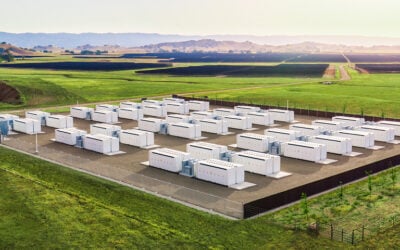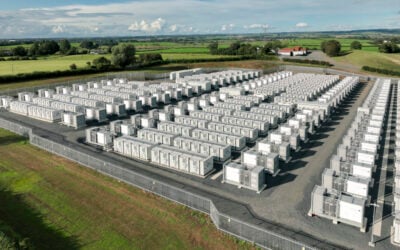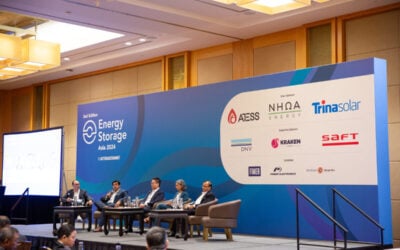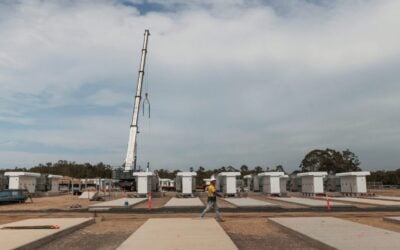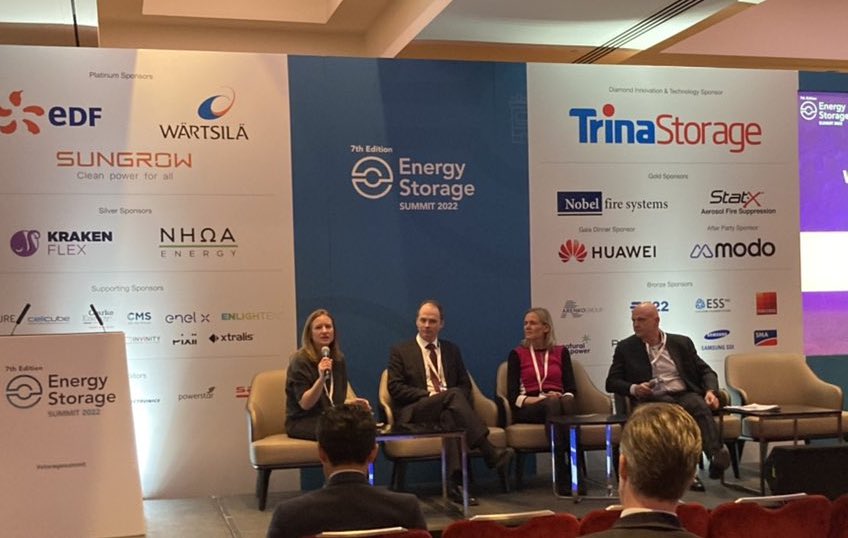
Investors are becoming increasingly comfortable with energy storage as an asset class but numerous regulatory and market design hurdles remain across European markets, according to panellists at the Energy Storage Summit 2022.
All agreed that the UK market was far ahead of its European peers on facilitating the growth of energy storage, in the Summit’s opening panel sessions in London this morning.
“It’s a very mature market with a lot of capital going in. There was something like 16MW of storage in 2015 and today we’re at around 2GW. The market designs and incentives are clearly in place in the UK market and we need to translate those learnings to European markets,” said Chris Morrison, managing director of Macquarie Capital’s Green Investment Group.
He added that this shouldn’t be surprising considering that vibrant energy storage markets tend to be island nations with big renewable energy sources.
Try Premium for just $1
- Full premium access for the first month at only $1
- Converts to an annual rate after 30 days unless cancelled
- Cancel anytime during the trial period
Premium Benefits
- Expert industry analysis and interviews
- Digital access to PV Tech Power journal
- Exclusive event discounts
Or get the full Premium subscription right away
Or continue reading this article for free
The Netherlands is something of an inverse case in point, where huge congestion on the grid is a big barrier to new energy storage and solar projects, said Heleen Groenenberg, Senior Electricity Market Developer at TenneT, the Dutch grid operator with a presence in Germany too.
Storage often also finds itself treated like a power generator and subsequently shut out of the market. TenneT demands 24-hour availability for frequency regulation services and Groenenberg hopes that piecemeal exceptions to this start being implemented on a regular basis. “Hopefully that will grow the market,” she added.
One positive recent change in the Netherlands has been the removal of double taxation on importing and exporting power to the grid, although double grid charges remain.
Ezio Ravaccia, CFO/CIO at Solar Ventures and Solar Ventures Capital, described Italy as an ‘early stage market’ with massive price differentials across regional energy markets.
“The key points are a need for contractual revenues and the bankability that can give you. It is currently really difficult to model investment in storage. The money and technology is there, it’s just about finding the right way to be able to invest into this asset class, and part of that is the debt-equity ratio where we still need to find a reasonable balance. I do see a big increase in the sector in the coming years in Italy,” he said.
Continuing Ravaccia’s point, Chris Morrison added that regulatory structures are a key thing holding back lots of European markets.
“That’s a big problem in Italy where it’s hard to get projects accepted,” he added, to strong agreement from Ravaccia.
On the subject of bankability, he added: “Investors need to get comfortable with 20-25 year financial models and, it might sound glib, but if you don’t have third-party consultants to forecast revenues it’s hard to convince your investment committee. It really is one of the most fundamental things,” highlighting the award of five-year Fast Reserve frequency regulation contracts in Italy as a positive sign.
“You also need your energy storage to be able to stack revenues and the UK government has been good at facilitating this,” he added.
The discussion then moved on to the colocation of energy storage with other technologies, predominantly solar power. Ravaccia said that colocation was the most effective way to grow in the Italian market and sees it growing in importance in the coming years and months.
Groenenberg said that colocation of solar and storage could allow another 7.5GW of solar power capacity in the Netherlands, equivalent to 1.5-2 megatonnes of carbon reduction. Though he said there was a healthy debate around the extent to which you specifically subsidise colocated storage.
Groenenberg sounded a note of caution that system operators do not view storage as an objective but rather a means to an end, and that batteries can often enlarge the challenge by, for example, all feeding in and charging from the grid at the same time.
Ravaccia expects the cost of battery energy storage, currently around €800k (US$906k)/MW, to fall in the coming years although not immediately. He had the same answer to a question around the storage capabilities of green hydrogen but said that it would be competing with numerous new technologies and the winner was not clear at this point.

